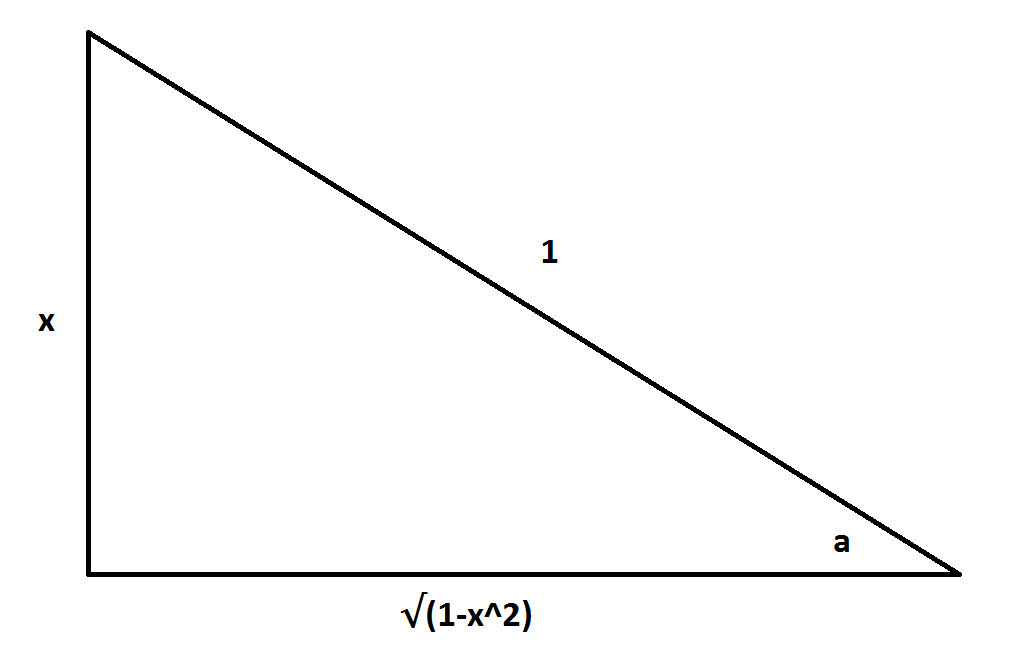What is #cos(sin^(-1)(sqrt(2)/2))# ?
2 Answers
Explanation:
Note that
Hence:
#cos theta = +-sqrt(1-sin^2(theta))#
So if
#cos theta = +-sqrt(1 - (sqrt(2)/2)^2) = +-sqrt(1-1/2) = +-sqrt(1/2) = +-sqrt(2)/2#
Note also that
Hence we want the positive square root and we find:
#cos (sin^(-1) (sqrt(2)/2)) = sqrt(2)/2#
Alternatively, just consider a right angled triangle formed by bisecting a unit square diagonally, with sides

Remember that:
#sin theta = "opposite"/"hypotenuse"#
#cos theta = "adjacent"/"hypotenuse"#
So we can see from this triangle that:
#sin (pi/4) = cos (pi/4) = 1/sqrt(2) = sqrt(2)/2#
Since we are dealing with angles in Q1, we find:
#cos(sin^(-1)(sqrt(2)/2)) = sqrt(2)/2#
Explanation:
We can solve this using that
However, let's look at a more general method for solving this kind of problem.
Suppose we are trying to find

Using the Pythagorean theorem, we can find the remaining side as
If we set
#=sqrt(1-1/2)#
#=sqrt(1/2)#
#=1/sqrt(2)#
#=sqrt(2)/2#
giving us the same answer as above.


